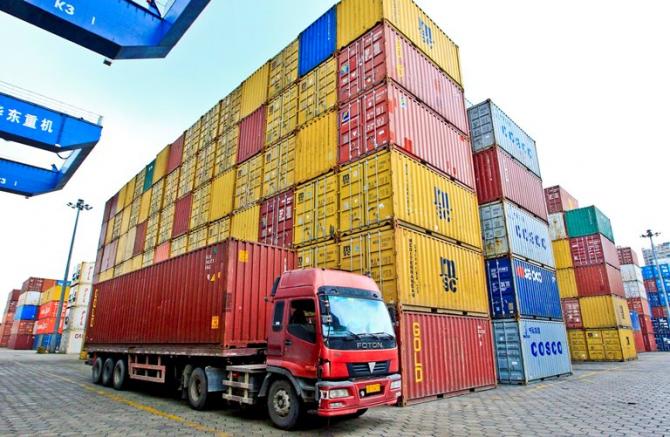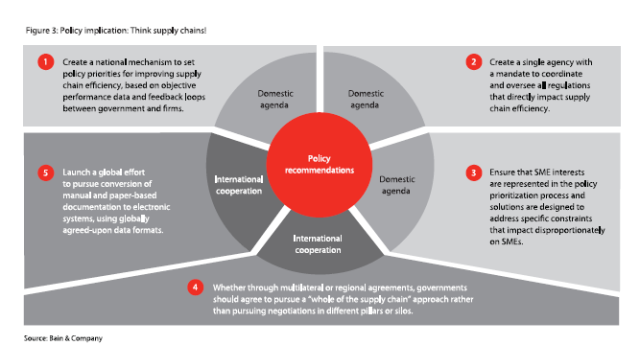
The issues highlighted above are neither new nor limited to Tanjung Priok. According to a World Bank survey, while most firms are satisfied with the factory gate price and quality of Indonesian products, they find that the main constraints for business transactions are the high transportation costs and unreliability of delivery schedules.
Research by The Asia Foundation and University of Indonesia in 2008 found that the operational cost of trucks in Indonesia was 34 cents per kilometer, while the average cost for all of Asia was significantly lower at 22 cents. Road and rail infrastructure in Indonesia is lagging behind many of its neighbors. In 2010, Indonesia’s road density (kilometers of road per 100 inhabitants) stood at 20, while China’s was 29 and Malaysia’s was 50. Indonesia’s traffic conditions might worsen should this issue not be addressed adequately, considering that its road growth is 1 percent per year while the number of vehicles on the road grows at 9 percent per year. In terms of rail transportation, Indonesia has half the number of railway lines per inhabitant as China, Malaysia and Thailand.

Such impediments introduce more time and costs to the supply chain. They also make it less reliable. According to the World Bank, logistics operators in Indonesia report that almost one-third of all shipments are not delivered as scheduled. As a consequence of this uncertainty, manufacturers are forced to maintain higher inventory levels.
The Indonesian government is well aware of this and has taken measures to remedy the situation. It includes short-term solutions including extending the customs and excise office opening hours and removing containers from the port to address the situation at Tanjung Priok. It also includes longerterm solutions such as establishing the New Tanjung Priok port, improving road infrastructure and developing a logistics blueprint in 2008 as part of the new National Single Window System.







 resized.png)
